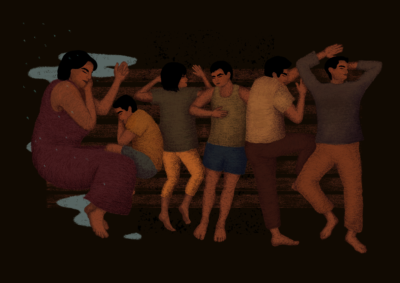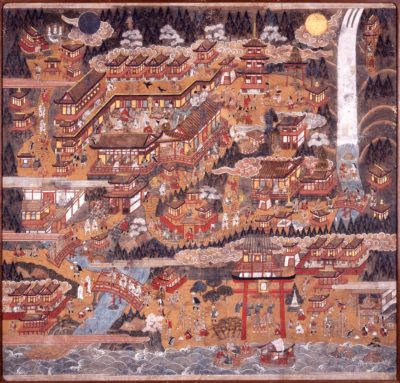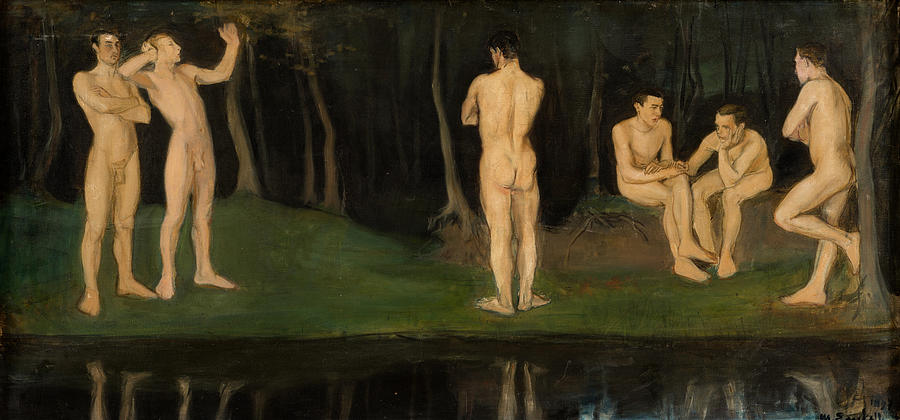-
“Showers in Barrio Bagol” by Elizabeth Joy Serrano-Quijano (translated from the Cebuano by John Bengan) Artwork by Kenneth Paul Senarillos
Showers in Barrio Bagol
Here in Lumbang, the rice fields are as wide as the sky. We measure time with the sun. The rising of the sun signals the tilling of soil, our daily labor. The sunset signals the time to rest our bodies.
Since I became aware of my surroundings, this has been our life: no labor, no food. There have been nights when we had nothing to eat especially when nobody would hire us to work. My children are used to our situation. We may be poor, but I work hard so my children could go to school,
-
“All About Youth” by Fumiki Takahashi (translated from the Japanese by Toshiya Kamei)
All About Youth
Takehiko Nomi was behind the wheel of the Audi iX, and we drove up a lush green mountain road. The sunbeams shimmered through the trees and poured over the shiny red hood.
Letting the autopilot feature take over, Takehiko closed his eyes and sipped the hot cup of semi-strong coffee he’d purchased despite the warm weather. He eased his curly-haired head back onto the soft headrest. He seemed to contemplate the upcoming reunion, and I wondered if memories might have flashed through his mind.
We were going to meet someone he hadn’t seen in a long time.
-
“The Tracks” by Felicity LuHill
Kim stared at her feet and silently counted her steps. One, two, three… 267 steps between lampposts. One hundred and fifty steps between mailboxes. Forty-two steps since the last time she passed a dog—a small, beige terrier, unafraid to yap at sulky teenage girls. She counted to remind herself that she was another step closer to her bedroom—to cool pillows, beef jerky, and documentaries about ships discovered on the bottom of the ocean.
She wondered what she would say to Stella, her mother, when she got home. “How can you forget to pick up your own daughter?” was an effective sentiment Kim frequently used.
-
Excerpt from “Morasses” by André Gide (translated from the French by Tadzio Koelb)
Translator’s introduction: In this chapter the narrator—who claims to be a writer, but never writes—has once again postponed work on his novel, Morasses, this time to attend a salon for men of letters at the home of his good friend Angèle. Gide used the scene as an opportunity to mock the literary world of his day. Readers can look for a caricature of Gide’s correspondent and sometime traveling companion Oscar Wilde, here given the name Valentin Knox.
Morasses
On the days she receives guests,



